Imagine standing in a field as a few horses gather round to check you out. They are watching you, and you are very aware of them, of their energy and communication, their body language. This easy lesson in observation is only the beginning of an opportunity to step away from the isolation and anxiety we all experience during the pandemic – a time that has been especially difficult for school-age children. Being immersed in the herd is a great antidote for too much screen time, too much alone time.
For Sarah McKay, the confidence that comes from a trusting relationship with a horse is an experience she recalls from her youth, and which she is passionate about offering to the Vineyard community through Misty Meadows, the equine learning center neatly tucked into the Elias Lane neighborhood in West Tisbury. Misty Meadows is a merger of two nonprofit Island organizations, Martha’s Vineyard Community Horse Center and Rising Tide Therapeutic Equestrian Center, with the goal to teach horsemanship through a mental, emotional and physical relationship with horses. Sarah is the executive director.
Sarah explains, “What we offer is not just riding, and not just therapy, but a combination. Some people will not be riding. There are physical benefits to being on the back of a horse, but on whatever level one starts, once someone understands that they can work with this magnificent being, it is confidence-building, both social and emotional.”
Learning about, and learning from, horses has been a lifelong interest for Sarah. In the small village in Northern Ireland where Sarah grew up, everyone had horses.
“Moy was originally a horse fair town. All the houses had extra rooms to board people who came to the fair, and extra paddocks for the horses,” she says.
Her grandfather and great-grandfather purchased Irish horses to supply European armies for their cavalries. When the wars ended, the family trained horses, and before Sarah was born, her mother started a riding school.
Sarah was very young when she was first put on the back of Noah, a black Shetland pony that had been herded up from the Hebrides and brought to her family’s farm. A photo from the local paper shows her crying as someone tries to lift her off the pony, and documents that she was only two days past her second birthday. The pony needed training and Sarah wanted to ride; together they worked out a relationship of clear communication, respect and trust. These are the memories Sarah says provided a grounding force in her childhood: riding around her small village, connected to the community through horses, and protected from the anxiety of living during the height of “The Troubles.”
Sarah recalls having wonderful relationships with the horses from her childhood. “The ones I was working with were the rejects, the ones that needed more. For me to be able to help them, and to develop trust and respect and love with them, helped me. The horses became another outlet for me, a coping mechanism,” she says.
When Sarah was in her teens, she lost both her parents: her mother to cancer, and her father, a few years later, to a heart attack. Her world changed quickly, and although she attempted to use her skills with horses to work in that world, it didn’t work out. “My parents had told me not to try and make a career in horses. Women are not treated well, aside from the fact that there was no money in it,” she recalls.
Instead, Sarah went to college, and was rewarded for her efforts with a Fulbright scholarship that took her to UMass Amherst, where she received a master’s in Regional Planning. This led to an internship with the Martha’s Vineyard Commission in 1994. She says the aesthetics of the Island were very familiar. She fell in love with the Island as well as the man who became her husband, and settled down here. For 17 years, she worked at Cronig’s Market, where she became store manager and gratefully gained an education in business from owner Steve Bernier. While working at Cronig’s, Sarah came to know the people and programs of the nonprofit Island Grown Initiative, which aims to increase local production of food and make sure Islanders have access to healthy food. She has supported their efforts by working as a volunteer, a board member, and as executive director.
Her experience there, managing the staff and collaborating with other Island organizations, proved to be invaluable when she began to work with the Kenney family to run the Martha’s Vineyard Community Horse Center. The family purchased the farm with a vision of a community hub for all things equestrian, including equine-assisted learning (EAL), which involves un-mounted groundwork. Using relationships and social skill building, EAL helps develop life skills, especially for individuals with physical, emotional and mental challenges. Today, instructors at Misty Meadows are either certified in EAL or in therapeutic horsemanship, in addition to holding state certification.
“The Kenneys built this facility with a vision for how it would enrich the Island, but they weren’t sure how to make it come about,” says Sarah. For Sarah, getting back to working with horses, and within a philosophy that sees horses as co-workers, gave her great satisfaction and a sense of coming full circle.
In 2016, Carol and Jerry Kenney generously decided to donate the facility and an endowment to start funding for the programs, including the therapeutic programs run by Rising Tide. Merging the two non-profits was one of the first hurdles that Sarah and the board took on, leading to the simpler name of Misty Meadows. Meanwhile, of course, there were the countless tasks of taking care of the facility, fields and the horses (care which includes nutrition, massage, dental and hoof care, and acupuncture).
“The expenses here are on-going. The stewardship of this place requires a high level of care, because it is so beautiful,” she says.
Sarah is grateful to the groups of volunteers who help with barn chores, and adds that they too enjoy their daily connection with the farm’s ten “four-legged” staff members. In fact, these ten horses have interacted with more than 2,000 people in the last few years, participating in programs aimed to empower individuals. Due to Covid restrictions, class sizes in the vast arena connected to the barn have been cut in half.
In addition to horsemanship classes and therapeutic lessons, the farm also offers experiences for families, caregivers and elders, and veterans. Misty Meadows is also the home of a popular mounted archery program. Experienced teenage riders practice synchronized riding as a drill team. All of these programs are offered at a fraction of the true cost to help bring the services to those who need them.
“Throughout history, horses have given us so much,” says Sarah. “They are constantly adapting to the ways that we need to use them. This chapter is more about learning and growth. Horses are here to teach us about self-regulation and about being aware. These horses are really our co-workers, and when you slow down, you can see it.”
Emily Meegan works at the West Tisbury Public Library and lives in Chilmark.

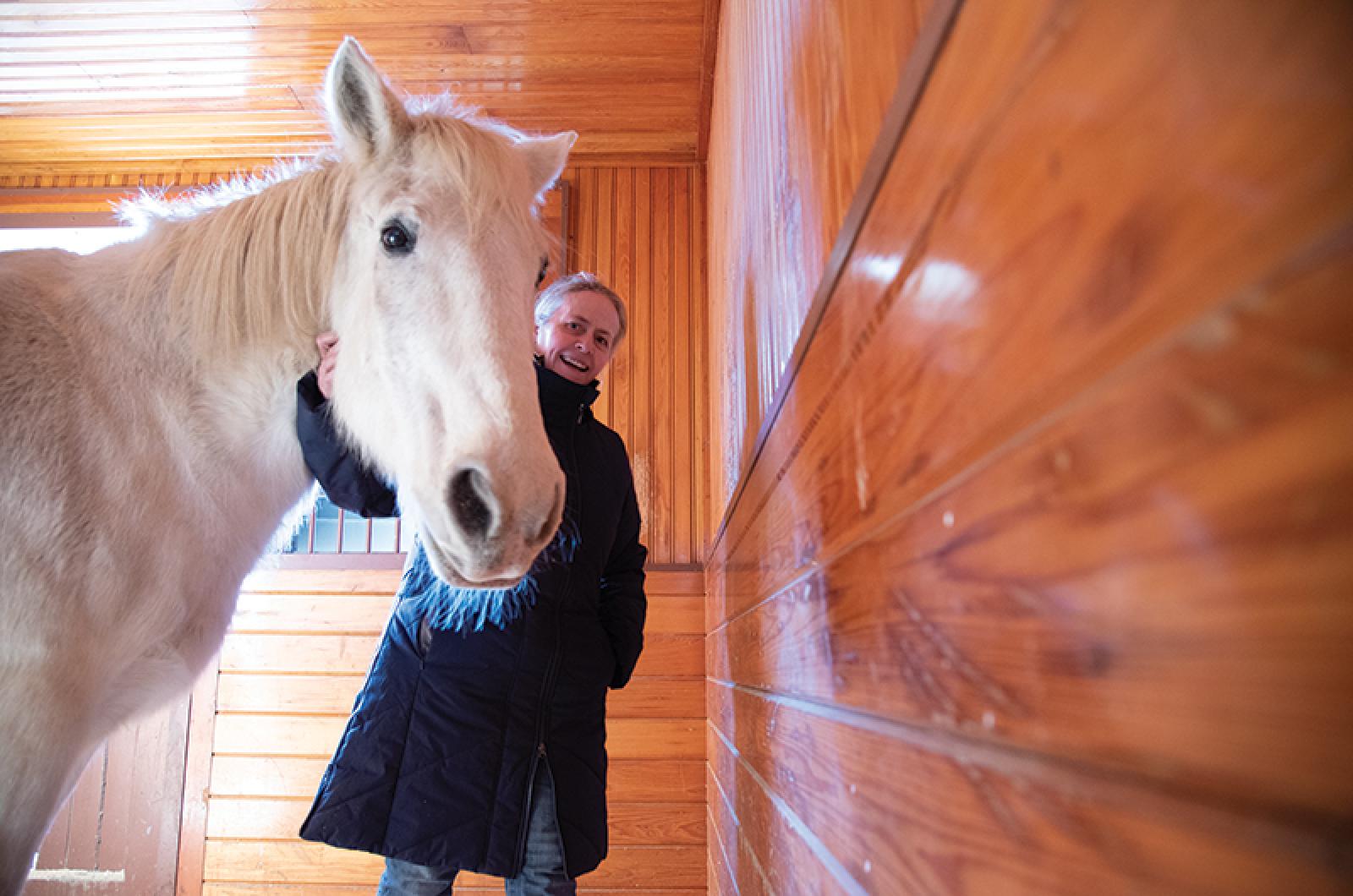



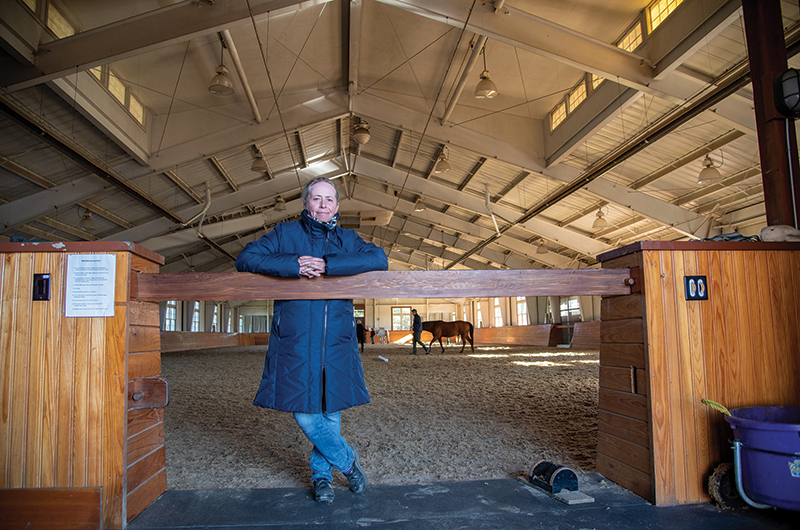
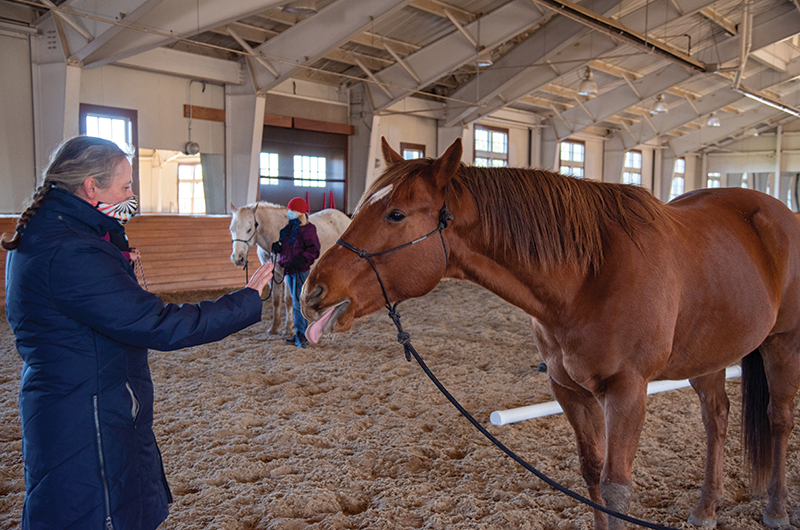
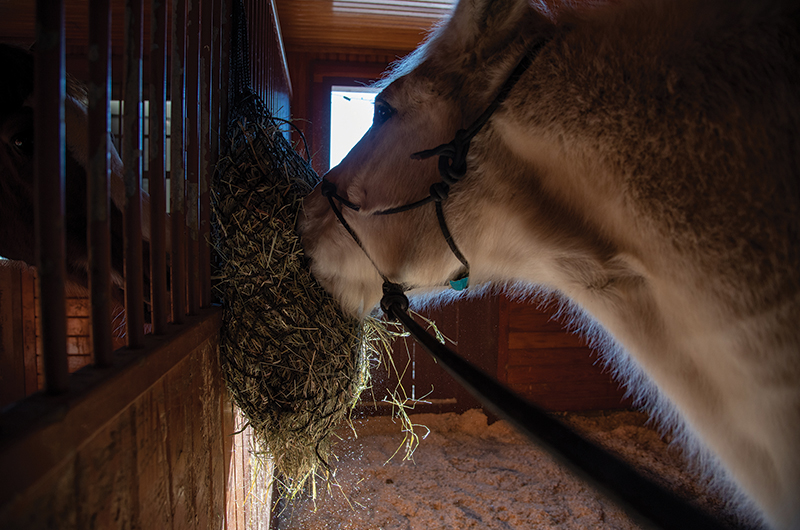

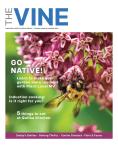
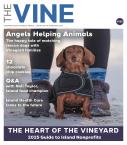

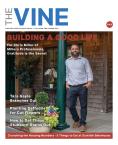

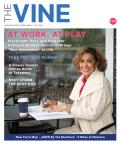
Comments